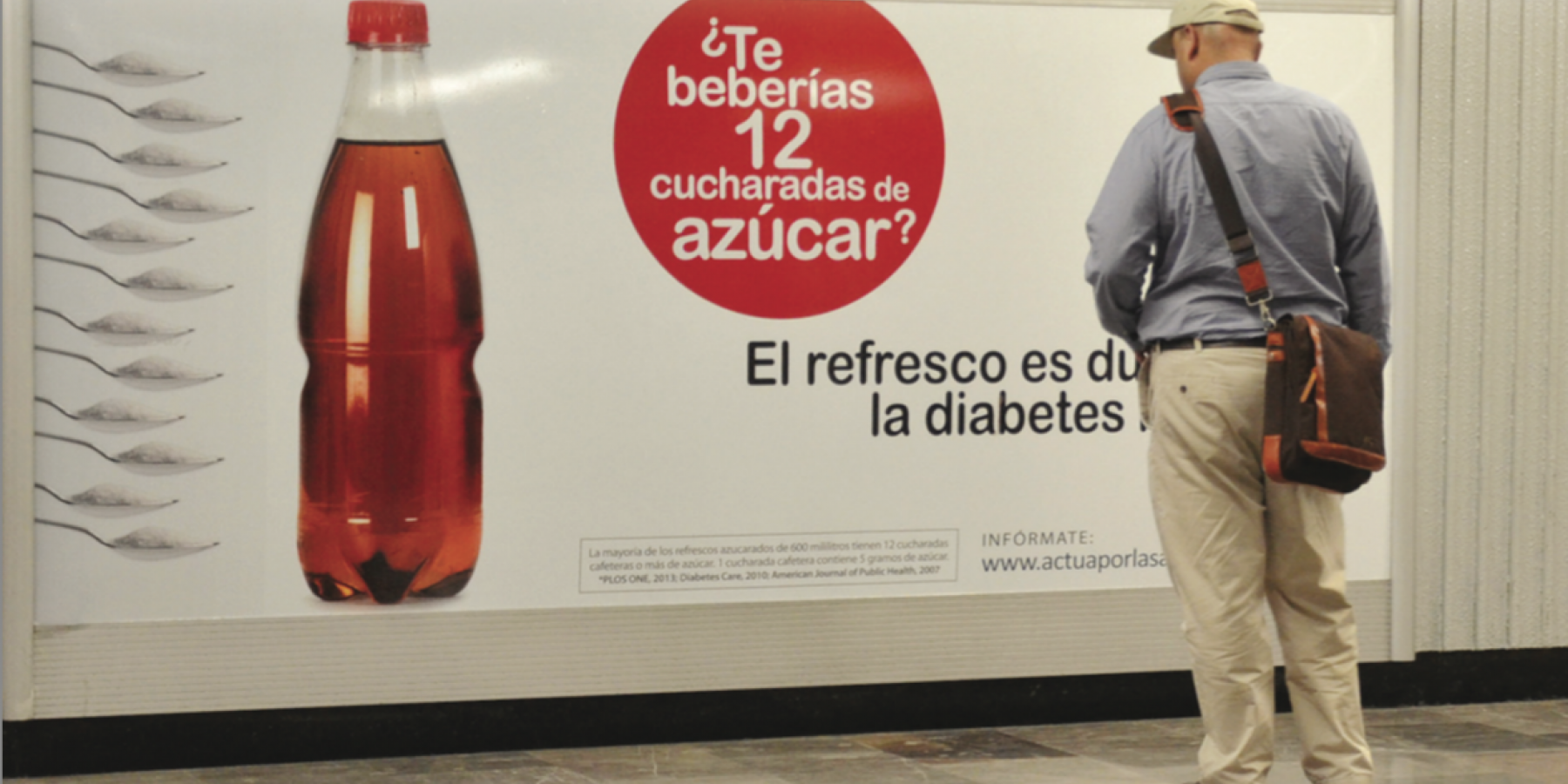Advocating for sugar-sweetened beverage taxation: A case study of Mexico
18th June 2015

18th June 2015
The obesity and diabetes epidemics in Mexico are significant public health problems that impose a substantial health and economic burden on the country.
A key driver of these epidemics is the high consumption of soda and other sugary drinks by Mexican children and adults. Given the link between sugar-sweetened beverage (SSB) consumption and obesity and related disease, a tax on these beverages emerged as a key target for policy intervention among health advocates.
In October 2013, the Mexican legislature passed a specific excise tax of 1 peso ($ 0.08 U.S. dollars [USD])1 per liter of SSBs, including sodas, energy drinks, bottled teas and coff ees, and fruit drinks. As one of the first countries to pass a tax on SSBs, Mexico’s experience provides key lessons for advocates interested in pursuing policy change in cities, states, and countries around the world.
A case study was conducted to explore the strategies of SSB tax proponents and opponents leading up to the passage of the 2013 tax in Mexico. The passage of the tax on SSBs was achieved through strategic and targeted advocacy, primarily focused on elevating the visibility of the issue and communicating a sense of urgency with policymakers and the public.
The advocacy strategy centered on two activities in particular — paid and earned media campaigns and formal lobbying — both of which leveraged scientific evidence and a rigorous understanding of the political context.
The findings of this report suggest that strong advocacy work, dissemination of concrete scientific evidence and knowledge of the political context are important facilitators in the promotion of policy change for obesity prevention and control.
The report was distributed to and discussed by key decision makers from throughout Latin America during the recent Regional Workshop on Non-Communicable Diseases held in Panama City, Panama, and hosted by the Pan-American Health Organization, Panama Ministry of Health and the Healthy Latin America Coalition.